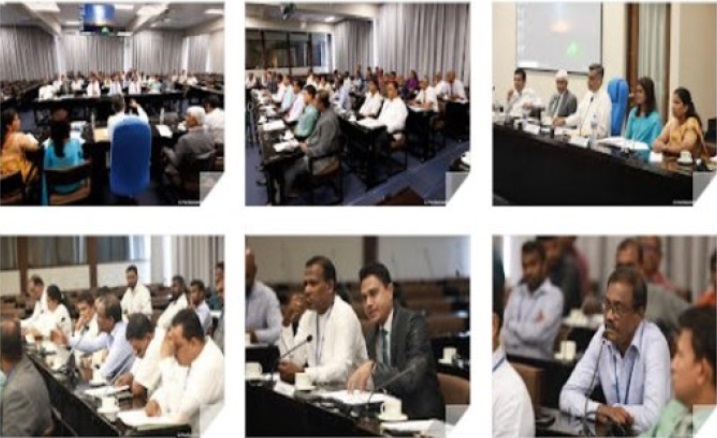There has not been a programme to recover the loans given to the government institutions by state banks.
Opinions and proposals of trade unions and professional associations related to the economic stabilisation of Sri Lanka were discussed at the the National Council sub-committee on identifying short- and medium-term programmes related to economic stabilisation.
The Committee chaired by MP Patali Champika Ranawaka was recently convened.
General Secretary of the Government Medical Officers Association (GMOA) Dr. Haritha Aluthge, who addressed on behalf of the medical unions, pointed out that the solutions and proposals recommended by the Economic Stabilisation Committee regarding drugs, food and nutrition and the proposals presented by his association are very similar.
He also mentioned that according to the recently published data, the nutritional problems in Polonnaruwa, Matara, Galle and other areas where the nutritional problems were at a minimum level are also showing an increase in nutritional issues. Dr. Aluthge further pointed out that through systematic regulation, about 20 billion can be reduced from the current amount of 160 billion for the purchase of medicines.
President of the Association of Health Professionals Ravi Kumudesh pointed out that it is necessary to give more attention to the proposals related to elimination of corruption requested by institutions such as the International Monetary Fund (IMF). He also pointed out that the authority of the National Procurement Commission in the procurement of medicines and equipment is not enough to overcome political interference.

Dr. Chandana Dharmaratne, editor of the Government Medical Officers Association, stated that due to the reduction of the retirement age of public servants, there will be early retirement of employees who are willing to work and who are able to work and there are preparations to close the opportunity for those who have left the public service to engage in private or foreign service.
According to the report issued by the Family Health Bureau regarding nutrition, it was emphasised that 50 per cent of children under 5 years are malnourished, and the body mass index of pregnant mothers is greatly reduced.
It was discussed that priorities should be identified at the level of Grama Niladari officials and Public Health Midwives and solutions related to this should be found and the committee chairman pointed out that the first report of the committee has proposed the electricity bill based method for preparing priority lists.
The representatives of the trade unions in the financial sector also pointed out that there was a severe economic collapse due to the political decisions made undermining the decisions of the Central Bank. They also pointed out that there has not been a program to recover the loans given to the government institutions by the state banking system.
It was also emphasised that about 80 per cent of the women work in the garment industry, and that industry suffers from extreme poverty. Committee Chief Ranawaka mentioned that even foreign banks have decided that doing business with Sri Lanka is dangerous. Therefore, he pointed out that even if the relevant large-scale companies decide to move their factories and offices to foreign countries, they do not try to take their employees who are suffering from poverty because those companies are interested in reducing their costs by getting cheaper labor from other countries.
Minister Nasir Ahmed and MP Ashok Abeysinghe were also present at this meeting.
MIAP


